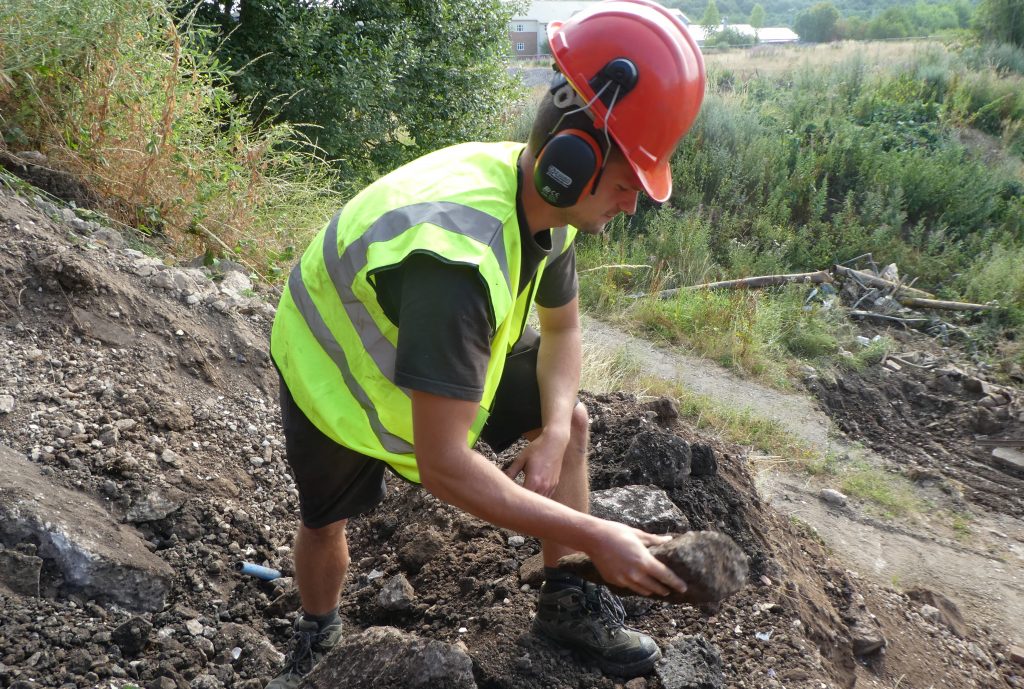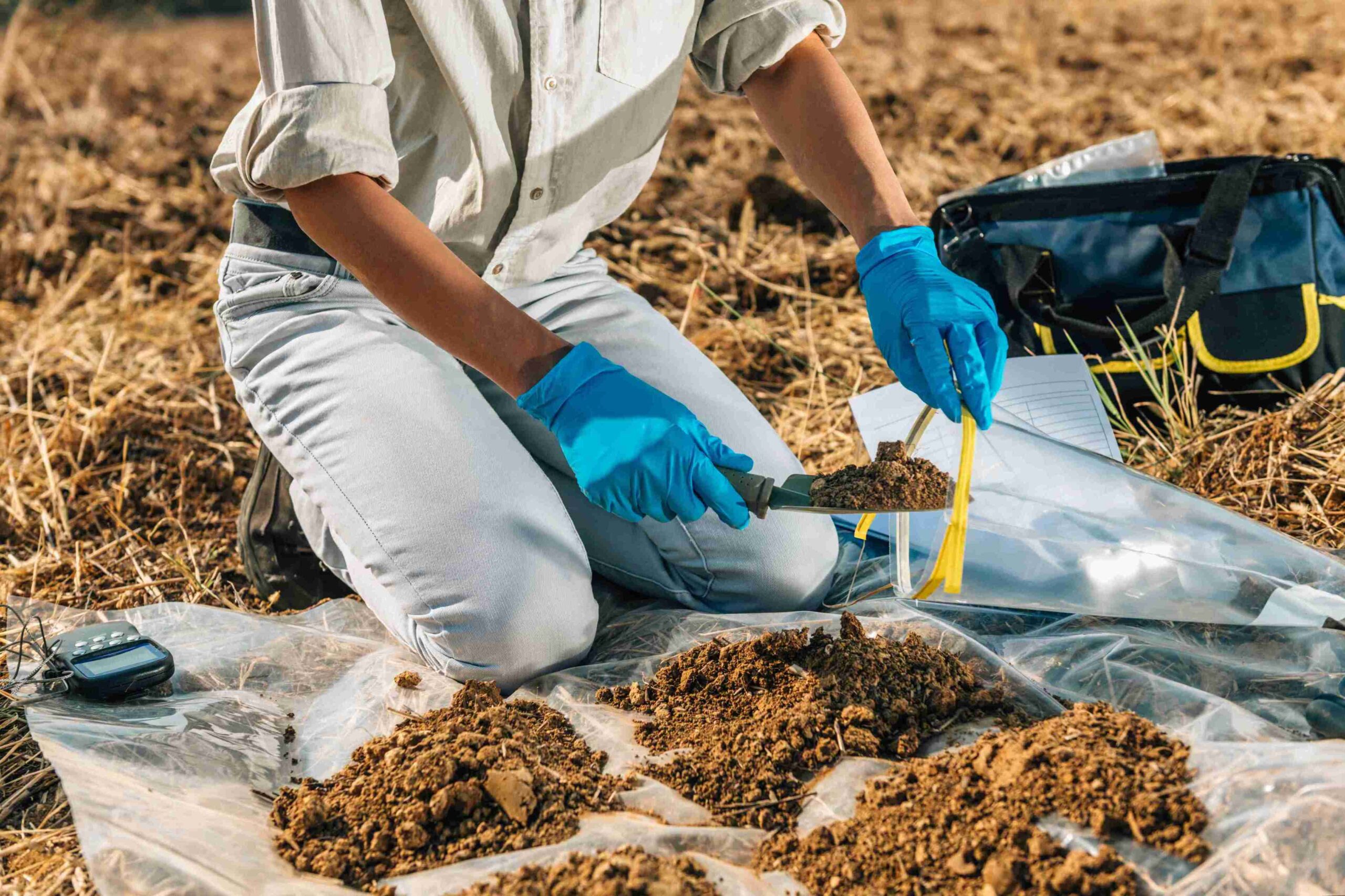Opening Hook
On a warm afternoon in Lahore, Ahmed stood proudly outside his newly purchased plot. He dreamed of building his family’s forever home, complete with a spacious basement for gatherings, storage, and maybe even a small gym. But as the first excavation machines rolled in, an unexpected halt came—the soil beneath was unstable, filled with clay pockets and water seepage. His dream was suddenly at risk, all because one critical step had been skipped: proper soil testing before basement digging.
This scenario may sound like a cautionary tale, but it happens more often than many homeowners and builders realize. The ground beneath our feet isn’t just dirt; it’s the foundation of everything we build. Without knowing its strength, composition, and behavior, basement construction can turn into a costly, even dangerous mistake.
Why Soil Testing Matters Before Basement Construction
Every basement project starts with a vision, but that vision can only become reality if the soil can support it. Soil testing is the process of analyzing the earth to understand its strength, density, moisture content, and chemical composition.

For example, sandy soils might drain water quickly but struggle to hold heavy loads, while clay-heavy soils expand and shrink with moisture changes, putting pressure on basement walls. In cities like Karachi or Islamabad, where soil types vary dramatically from plot to plot, skipping testing is like building a house on a lottery ticket—you don’t know the outcome until it’s too late.
Furthermore, governments and municipal authorities in many regions (including the UAE and Pakistan) have made soil testing mandatory for construction permits. This ensures not only the safety of the homeowners but also the longevity of the surrounding infrastructure.
Read More: Basement Office Ideas – 11 Stylish Work From Home Spaces
The Key Soil Tests Required Before Basement Digging
To the untrained eye, soil looks uniform. But engineers know it can be a complex mix of sand, clay, silt, gravel, and organic material. Each type behaves differently under weight and water. That’s why geotechnical engineers perform a series of tests before excavation begins.
1. Soil Bearing Capacity (SBC) Test
The most crucial test measures how much load the soil can bear without collapsing. For a basement, where walls push horizontally against soil and floors carry vertical loads, SBC ensures the ground won’t give way.
- Example: A homeowner in Rawalpindi ignored SBC testing and built a basement on soft clay. Within three years, cracks appeared on walls due to uneven settling, costing thousands in repairs.
Read More: Safety Proofing Elderly Living Space in Basement
2. Moisture Content & Permeability Tests
Basements and water don’t mix well. Moisture testing helps identify how much water the soil retains and whether drainage systems will be needed.
- In areas with high groundwater tables, like coastal Karachi, basements without moisture testing often face flooding issues during monsoons.
Read More: Can You Use Natural Ventilation in UAE Basements?
3. Soil Composition Analysis
By identifying the proportions of sand, clay, and silt, engineers predict how soil will behave. Clay soils, for instance, expand in rainy seasons and shrink during dry spells—potentially warping basement walls.
Read More: Best Flooring for Allergy-Free Basements
4. Compaction Test
Loose soil can lead to uneven settling. Compaction tests ensure soil is dense enough to provide stability for foundations and basement floors.
Read More: Basement Retaining Wall Rules in UAE
5. Chemical Tests
Some soils contain salts or chemicals that corrode concrete and steel. In Lahore, high sulfate content in the soil has damaged many underground structures. Chemical testing prevents such long-term deterioration.
Read More: Best Water Alarm Sensors for :Basements Protecting Your Home from the Unseen Threat
Real-Life Consequences of Skipping Soil Testing
While soil testing may feel like an extra expense, skipping it often costs far more.
For instance, in Dubai’s Business Bay, a commercial property project had to pause mid-construction when water seepage from the soil caused excavation walls to collapse. The result? Delays of six months and millions lost in additional safety measures.
In contrast, projects that invested in thorough geotechnical surveys not only saved money in the long run but also secured long-term durability for the structure. The lesson here is simple: preventive testing costs less than reactive repairs.
Read More: Basement Cafeteria Setup for Joint Families
Soil Testing Requirements in Pakistan and the UAE
Both Pakistan and the UAE have recognized the importance of soil testing in basement and high-rise construction.
- Pakistan:
- Local building authorities in Lahore, Karachi, and Islamabad often require a soil investigation report for basement permits.
- Standard tests include SBC, water table measurement, and soil composition analysis.
- UAE:
- Dubai Municipality mandates a geotechnical report before excavation begins.
- Special attention is paid to groundwater control due to the region’s coastal nature.
As a result, no reputable contractor in either region begins digging without this crucial step.
Read More: What Causes Bad Basement Air & How to Fix It
Who Performs Soil Testing?
Soil testing isn’t a DIY task—it requires expertise and specialized equipment. Licensed geotechnical engineers and soil labs carry out these tests. They drill boreholes into the ground, extract samples, and analyze them in controlled environments.
Hiring an experienced soil testing company not only ensures accuracy but also provides homeowners with peace of mind. Think of it as insuring your investment before even laying the first brick.
Read More: How Monsoon Affects Basement Excavation in Pakistan
How Long Does Soil Testing Take?
Many homeowners worry that soil testing will delay construction. In reality, most standard tests can be completed within 1–2 weeks. Complex projects might take longer, but this time investment is minimal compared to potential structural failures.
Read More: Moisture-Resistant Furniture Material Ideas: Choosing Pieces That Last a Lifetime
Cost of Soil Testing Before Basement Digging
The cost varies depending on location, depth, and the type of testing required.
- In Pakistan, soil testing typically ranges between PKR 50,000 to PKR 200,000, depending on project size.
- In Dubai, costs may range from AED 5,000 to AED 20,000.

When compared to the millions spent on constructing and furnishing a basement, this amount is a small yet crucial insurance.
Read More: Creating a YouTube Studio in a Basement :Turning Hidden Spaces into Creative Havens
Frequently Asked Questions (FAQs)
1. Is soil testing mandatory for small residential basements?
Yes, in many cities it’s required for permits, and even if not mandatory, it’s highly recommended for safety.
2. Can poor soil be improved for basement construction?
Yes, engineers use methods like soil stabilization, compaction, or installing retaining walls to strengthen weak soil.
3. What happens if groundwater is found during testing?
A waterproofing and drainage plan is designed, such as sump pumps, French drains, or reinforced concrete walls.
4. Can I skip soil testing if my neighbor already built a basement nearby?
No, soil conditions can vary drastically even within a few meters, so every plot requires its own testing.
Read More: Creating Balanced Lighting with Wall Washers: A Guide to Illuminating Your Space
Closing Thoughts
Ahmed, from our opening story, learned the hard way that the ground beneath his dream home held secrets that only testing could reveal. His experience became a lesson for others: never dig blindly when it comes to basements.
Soil testing isn’t just a box to check—it’s the foundation of safe, durable, and cost-effective construction. By investing in this early step, homeowners and builders protect their vision, their budget, and most importantly, their safety.
Next time you hear someone planning a basement, ask them: Have you tested your soil yet? That one question could save them years of trouble.
🏗️ Basement Project Calculator
Latest Post
-
How to Build a Legal Basement Apartment in the USA | Guide
Opening Hook Imagine this: you’re standing in the nearly-finished basement of your home in the USA, and the monthly rent from the future tenant—or perhaps your aging parents moving in with you—is just about enough to cover your mortgage. You’ve envisioned your own “in-law suite,” financial freedom, or added flexibility. But then, you pause and…
-
20 Best Basement Man Cave Ideas for the Ultimate Space
Imagine this: you come home after a long week in your busy USA-based life, head downstairs, flip on the lights in the basement, and step into your very own retreat — a space built just for you. That’s the magic of basement man cave ideas, a growing trend for homeowners who want a unique sanctuary…



